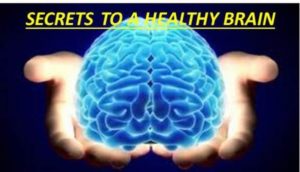A type of brain-training exercise that you can do at home on a computer, tablet or smartphone may help keep your brain young and perhaps even reduce the effects of dementia, according to the results of a preliminary study announced this week.
The pilot study involved a handful of older adults who did a brain exercise called “Freeze Frame” for about six weeks. At the end of that time, PET scans showed they had higher levels of a brain chemical that plays a key role in forming memories and combating Alzheimer’s disease…
This is the second time in three years that brain training exercises have been highlighted at the international conference for their ground-breaking results in the battle against Alzheimer’s.
In 2016, results from a study that followed some 2,800 adults over a period of 10 years showed those who practiced a brain exercise called “Double Decision” had up to a 48 percent lower risk of dementia, depending on how long they played that game and other factors.
Both “Double Decision” and “Freeze Frame” are commercially available to the public through a brain training website and mobile app called BrainHQ.
The most recent study involving the “Freeze Frame” exercise was conducted by McGill University and Posit Science, the company that operates BrainHQ. The exercise is played like a computer game, and involves being shown an image, followed by a rapid succession of additional images. The person playing the game must respond by quickly tapping a key or screen if the new image does not match the first image they saw, or must withhold a response by doing nothing if the image is a match. (The video below demonstrates how the game exercise is played.)
In the McGill study, five adults did the exercise on iPads for a total of 12 hours, broken down into 30-minute sessions several times a week. The level of acetylcholine was measured in their brain before they began, and again at the end of the study.
The PET scans showed that after five to six weeks of brain training, the levels of acetylcholine across four regions of the brain had increased between 16 and 24 percent.
That’s significant, because acetylcholine is released when you pay attention and plays a pivotal role in both learning and memory. It’s a naturally occurring brain chemical, but as we age, our brain typically produces less of it. If you have lower levels of acetylcholine in your brain, that can contribute to normal, age-related memory decline — or “senior moments,” as they are sometimes call.
More severe declines in acetylcholine are strongly associated with more serious cognitive decline and dementia. In fact, medications like Aricept that are currently given to Alzheimer’s patients work to reduce the loss of acetylcholine in the brain, which can somewhat slow the cognitive decline associated with dementia, but not in a long-term way.
If brain training can elevate the level of acetylcholine in the brain, that would give older adults concerned about memory loss an effective way to protect their cognition and potentially fend off dementia. Brain health experts briefed on the McGill study in Chicago this week used terms like “very exciting” and “remarkable” to describe the findings.
“The brain may really be like a muscle and able to get stronger throughout life,” said Dr. Mike Roizen, chief wellness officer at the Cleveland Clinic. “We over 35, and especially over 50, who want to keep our brains young should be practicing the exercises ‘Freeze Frame’ and ‘Double Decision’ regularly, based on recent studies. This may be the best use of iPads yet.”




